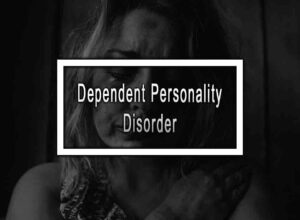Table of Contents
ToggleUnlocking the Power of Tricyclic Antidepressants – A Path to Recovery
In the fast-paced world, we live in, mental health concerns have become increasingly prevalent. For those wrestling with the burdens of depression, anxiety disorders, and chronic pain, tricyclic antidepressants offer a glimmer of hope. While often overlooked in favor of newer medications, tricyclic antidepressants have stood the test of time, proving to be an effective treatment option for many individuals. In this article, we delve into the benefits, uses, and potential side effects of tricyclic antidepressants, shedding light on their enduring relevance in mental health care.
Benefits and Uses of Tricyclic Antidepressants: How These Medications Can Positively Impact Mental Health
Efficacy and Long-standing Reputation
Tricyclic antidepressants have been a mainstay of treatment for various mental health conditions since their introduction in the 1950s. Over the years, rigorous scientific research has continued to highlight the positive impact of these medications in alleviating symptoms of depression, anxiety disorders, and even certain sleep disorders. The longevity and widespread usage of tricyclic antidepressants reflect their proven efficacy in restoring balance to brain chemistry and improving overall mental well-being.
Versatility in Treatment Applications
One of the key advantages of tricyclic antidepressants lies in their versatility. Not only are they effective in managing depressive symptoms, but they can also be employed as an alternative treatment for a range of mental health disorders, including obsessive-compulsive disorder and panic disorders. This adaptability ensures that patients have access to a reliable treatment option that aligns with their specific needs, reducing the need for polypharmacy and simplifying treatment regimens.
Relief from Chronic Pain
Beyond their mental health benefits, tricyclic antidepressants have shown significant efficacy in managing chronic pain conditions. These medications work by altering neurotransmitters’ activity in the brain, which can help alleviate nerve pain and migraines. For individuals who experience prolonged discomfort due to conditions such as fibromyalgia or neuropathy, tricyclic antidepressants offer promising relief, assisting not only with mental health but also enhancing the overall quality of life.
Conclusion
Tricyclic antidepressants have consistently demonstrated their worth as an effective treatment option for a variety of mental health concerns. Their longevity in the pharmaceutical market speaks volumes for their enduring relevance and positive patient outcomes. With their wide-ranging applications, from managing depressive symptoms to providing relief from chronic pain, tricyclic antidepressants offer a holistic approach to recovery that encompasses both mind and body.
As we move forward in treating mental health disorders, let us recognize the vital role that tricyclic antidepressants continue to play. By exploring the comprehensive benefits, uses, and potential side effects of these medications, we can ensure that individuals seeking a reliable and time-tested solution find solace, hope, and a renewed zest for life.
Tricyclic Antidepressants FAQ
Here are the most common questions about tricyclic antidepressants.
1. What conditions can TCAs be prescribed for?
In addition to depression, tricyclic antidepressants may also be prescribed for other conditions, including anxiety disorders, obsessive-compulsive disorder (OCD), and chronic pain syndromes such as fibromyalgia and neuropathic pain.
2. How do TCAs compare to other antidepressants?
Tricyclic antidepressants were among the first generation of antidepressant medications, and they have been widely used for many years. They are generally effective, but they also come with a higher risk of side effects compared to newer antidepressants such as selective serotonin reuptake inhibitors (SSRIs).
3. What are some common side effects of TCAs?
Common side effects of tricyclic antidepressants may include dry mouth, constipation, blurred vision, drowsiness, dizziness, weight gain, and sexual dysfunction. These side effects can often be managed or minimized with careful monitoring and dose adjustments.
4. How long does it take for TCAs to start working?
TCAs generally take a few weeks to start working effectively, although some improvement may be noticed within the first few days. It is important to continue taking the medication as prescribed, even if it doesn’t seem to be working right away, as it may take time to find the right dose or combination of medications for optimal benefit.
5. Can TCAs be used in children and adolescents?
Tricyclic antidepressants are generally not recommended for children and adolescents due to the potential for serious side effects and safety concerns. However, in some cases, they may be prescribed under close supervision and monitoring by a qualified healthcare professional.












